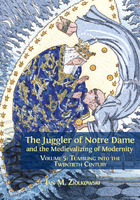The Juggler of Notre Dame and the Medievalizing of Modernity
Volume 5: Tumbling into the Twentieth Century
| dc.relation.isnodouble | ccecd98a-723a-4082-9e27-da4ec1fa528c | * |
| dc.relation.isnodouble | e5b5492e-2c4c-4bcb-92f0-61895551edfc | * |
| dc.relation.isnodouble | 8046f78a-e112-4b0d-acca-a2ca2187a1ed | * |
| dc.relation.isnodouble | 61a1d76e-63cc-4bcc-95ac-e21b6374c2a4 | * |
| dc.relation.isnodouble | 62035e27-8ddf-462a-9850-b67b11f46244 | * |
| dc.contributor.author | Ziolkowski, Jan M. | |
| dc.date.accessioned | 2018-12-03 12:51:37 | |
| dc.date.accessioned | 2020-04-01T11:55:39Z | |
| dc.date.available | 2020-04-01T11:55:39Z | |
| dc.date.issued | 2018 | |
| dc.identifier | 1002494 | |
| dc.identifier | OCN: 1076657066 | en_US |
| dc.identifier.uri | http://library.oapen.org/handle/20.500.12657/27513 | |
| dc.description.abstract | The ANZUS Alliance was a defence arrangement between Australia, New Zealand and the United States that shaped international policy in the aftermath of the Second World War and the early stages of the Cold War. Forged by influential individuals and impacting on global events including the Japanese Peace Treaty, the Korean War and the Suez Crisis, the ANZUS Alliance was a crucial factor in the seismic changes that took place in the second half of the twentieth century. In this compact and accessible study Andrew Kelly lays out the tensions that underpinned the formation of the Alliance, as each power sought to extract maximum influence and prestige, and examines how the ANZUS powers worked together (or failed to do so) when responding to massive global events including the rise of the People’s Republic of China and the waning of the British Empire. Kelly comprehensively explores the reasons why Australia and New Zealand disagreed so regularly about mutual security issues, how US global leadership shaped ANZUS, and the British impact on the trilateral relationship, and outlines how these issues set the foundations for today’s world order. ANZUS and the Early Cold War is essential reading for historians of Australian, New Zealand and American international relations in the twentieth century. Its concise format and readable style will also appeal to general readers interested in the history and foreign policies of these nations, and to anyone who wants to know more about the individual and geopolitical tensions that beset any major alliance. | |
| dc.language | English | |
| dc.subject.classification | thema EDItEUR::A The Arts::AG The Arts: treatments and subjects::AGA History of art | en_US |
| dc.subject.classification | thema EDItEUR::6 Style qualifiers::6M Styles (M)::6MB Medieval style | en_US |
| dc.subject.classification | thema EDItEUR::D Biography, Literature and Literary studies | en_US |
| dc.subject.classification | thema EDItEUR::J Society and Social Sciences::JB Society and culture: general::JBG Popular beliefs and controversial knowledge::JBGB Folklore studies / Study of myth (mythology) | en_US |
| dc.subject.other | Middle Ages | |
| dc.subject.other | reception studies | |
| dc.subject.other | Modernity | |
| dc.subject.other | medieval studies | |
| dc.subject.other | medievalism | |
| dc.subject.other | philology | |
| dc.subject.other | literary history | |
| dc.subject.other | art history | |
| dc.subject.other | folklore | |
| dc.subject.other | performance studies | |
| dc.subject.other | classical music | |
| dc.subject.other | Jules Massenet | |
| dc.subject.other | Mary Garden | |
| dc.subject.other | Le jongleur de Notre Dame | |
| dc.title | The Juggler of Notre Dame and the Medievalizing of Modernity | |
| dc.title.alternative | Volume 5: Tumbling into the Twentieth Century | |
| dc.type | book | |
| oapen.identifier.doi | 10.11647/OBP.0148 | |
| oapen.relation.isPublishedBy | 23117811-c361-47b4-8b76-2c9b160c9a8b | |
| oapen.collection | ScholarLed | |
| oapen.pages | 408 | |
| oapen.identifier.ocn | 1076657066 |

